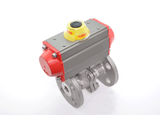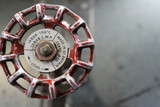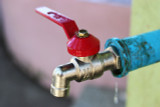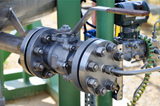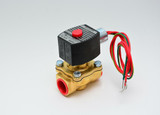Cast Iron Valves
There are no products listed under this category.
Cast iron valves are immensely useful tools that can contribute to a system that functions really well. But what makes them unique, what are the advantages of buying them, and where can you use them? Let’s take a closer look.
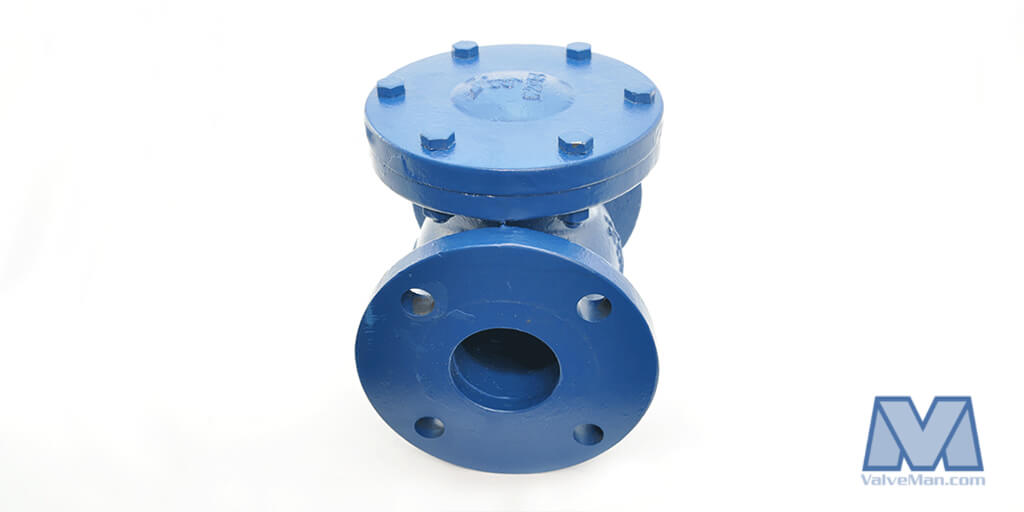
What is a Cast Iron Valve?
A cast iron valve, as the name suggests, is any type of valve that is constructed using cast iron. There are many different types of cast iron valves, ranging from butterfly valves to gate valves and ball valves.
Why You Should Buy Cast Iron Valves
There are many benefits to using cast iron valves, which is why they’re popular in so many different industries.
One of the benefits of purchasing cast iron valves includes their corrosion resistance, which is a major drawing point in industries that work with caustic or corrosive fluids.
But what are some of the other benefits you can look forward to? Let’s take a look:
- They’re Your Budget’s Best Friend: You can’t go wrong with cast iron valves if you’re looking for affordability combined with longevity!
- They’re Installation Champions: If you’re looking for something that’s quick and easy to install, cast iron valves are a breeze to work with, which saves you time and money.
- They’re an Eco-Friendly Choice: If you fancy yourself a go-green kind of person, cast iron valves are ideal for you. Not only are they fully recyclable, but they’re also an eco-conscious choice.
- They are Built to Last: If durability and longevity are vital to you, cast iron valves are the ideal choice for you! These valves are so durable that your grandchildren could still be using them.
These are just a few of the many wonderful benefits that purchasing a cast iron valve will get you. If you’re looking for rust-resistant durability at an affordable price, get your cast iron valves today!
What is the Purpose of Cast Iron Valves?
While you may not hear them spoken about every day, cast iron valves work tirelessly behind the scenes of homes, businesses, and infrastructures.
Some of the many ways that cast iron valves get used every day include the following:
- Home Use: Cast iron valves are used to help ensure flawless water flow throughout homes.
- Gas Lines: In both home and industrial applications, cast iron valves are used to ensure smooth gas flow through controlled gas lines. This is essential for heating, cooking, and several other applications.
- Reliable Energy Production: In the case of power stations and similar situations, cast iron valves are used to help regulate the control of various liquids that are vital to the energy production process.
- City Infrastructure: From controlling and distributing potable water, to directing fluids in wastewater treatment plants, cast iron valves play a vital part in many different aspects of city infrastructure.
These are just a few of the places that regularly buy and use cast iron valves. They find uses in almost every type of application thanks to their strength, durability, and reliability. If you’re looking for a workhorse, purchase your cast iron valve today!
Buying the Right Cast Iron Valve
Take the guesswork out of finding the right cast iron valve for your application, using our simple guide! Here are some simple things to consider before buying a valve:
- The system’s temperature range
- The type of fluid the system is transporting
- Required flow rate and pressure for the application
For more information about choosing the perfect valve, check out our comprehensive guide to valve selection. Alternatively, contact us. We have all the experience you need to help you buy the right valve for you!
Cast Iron Valve Maintenance
While cast iron valves are renowned for their durability and resilience, basic maintenance can help preserve them. Their low maintenance requirements are definitely a major selling point for cast iron valves, but here are some things you can do to keep them in shape:
- Perform regular visual inspections to check for cracks and leaks.
- Periodically cycle the valve through its full range of motion to maintain smooth operation and prevent seizing.
- Clean the exterior of the valve regularly.
- Lubricate when necessary.
- Clean the interior of the valve if debris build-up occurs.
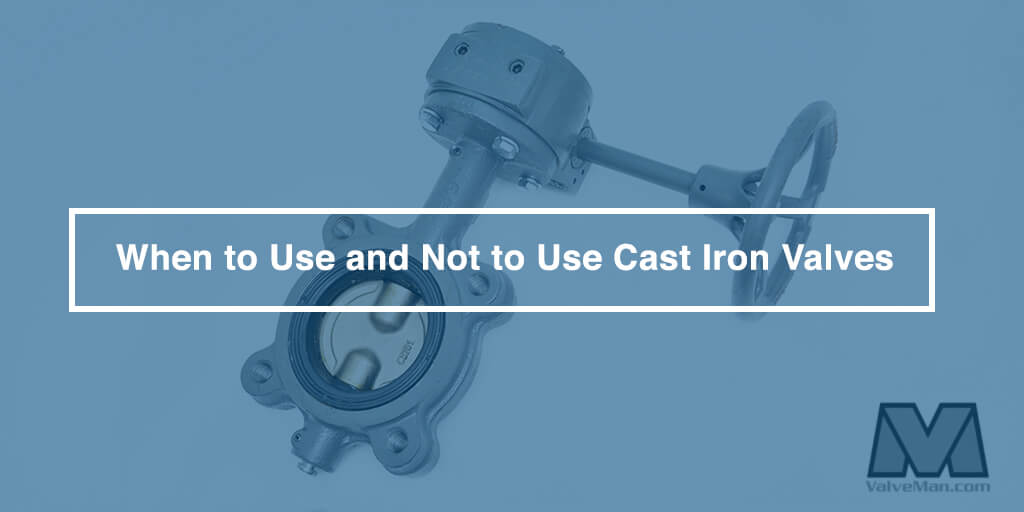
When to Use and Not to Use Cast Iron Valves
Cast iron valves are very durable, but have drawbacks, and therefore their applications should be chosen carefully. They are seriously susceptible to oxidation when exposed to high humidity for long periods of time. Their low ductile strength means they should not be subjected to any kind of bending (such as in marine applications, as large ships tend to bend and flex with the motion of the sea: Navy regulations call for ductile iron). Cast iron valves should be avoided for applications involving excessively high pressures, as they are somewhat brittle. Cast iron is also susceptible to graphite corrosion (graphitization: surface and structure look fine, but the integrity of the metal weakens). This is caused by anything highly acidic. These conditions should be avoided where the application of cast iron valves are concerned. However, cast iron valves and cast iron piping are commonly used for water distribution, steam, plumbing, drain, waste, and vent plumbing applications. They are also used in many industrial and commercial applications. Cast iron valves are available in a wide range of sizes and configurations, including but not limited to, ball valves, gate valves, butterfly valves, and multi-piece valves like flanged valves. You can shop cast iron valves through top manufacturers such as Milwaukee Valves through the ValveMan valve store.
Frequently Asked Questions (FAQs)
What are the different types of cast iron valves?
There are many different types of cast iron valves including gate valves, ball valves, and check valves.
What are the advantages of using cast iron valves?
The advantages are manifold, and include strength, longevity, and corrosion resistance.
What is the pressure rating for cast iron valves?
On average, most cast iron valves have a pressure rating between 150 and 500 PSI, depending on the valve’s specifications.
Purchase Cast Iron Valves at ValveMan!
Craving a cast iron valve solution that's built to last? Buy your valves today at ValveMan, your one-stop shop for top-tier valves and essential tools.
We boast a massive selection of valves and essential tools like electric or pneumatic valve actuators.
Don't settle for anything less. Equip yourself with the perfect valve solution today and experience the ValveMan difference!
Purchase yours now and unlock total valve control!
Resources
https://www.commercial-industrial-supply.com/resource-center/ductile-valves-vs-cast-iron-valves/ - Accessed 29/02/2024
Our Posts
View AllIntroducing Apollo Valves
Apollo Valves® inventory includes a wide range of valve products supplied to diverse markets. Th …
Read MoreUnderstanding Valve Sizes and Measurement
Sizing the appropriate valve is critical to ensuring the performance of your system. Whether you'r …
Read MoreTypes of Water Valves
Hey there, fellow valve enthusiasts! We all know that valves play a crucial role in regulating th …
Read MoreWhat is a Backflow Preventer, and How Does it Work?
When a simple check valve is inadequate for the job, you need a backflow preventer. But knowing …
Read MoreValve inspection - main points of valve testing in Manufacture setting
Industrial facilities rely on different types of valves (such as check valves, for example) to con …
Read MoreTypes of Ball Valves
Ball valves are important components in a vast range of systems, from small family-owned workshops …
Read MoreUnderstanding valve standards and specifications
Hey there, fellow valve enthusiasts! Today, we're looking at valve codes, standards and specifica …
Read MoreHow to Tell if a Valve is On or Off
We have all been there before. You are staring at a valve; you know that you should know if it …
Read MoreUnderstanding Different Types of Valve Connections and Fittings
Hey there, fellow valve enthusiasts! We know valves play a crucial role in regulating the flow of li …
Read MoreTypes of Valve Handles: Lever and Handwheels
Whether you're involved in industrial work, plumbing, or you're a DIY enthusiast, you come across va …
Read MoreThe Basic Parts of a Valve
Valves quietly work in many different areas, even places you wouldn't expect. They're truly every …
Read MoreGas Ball Valves In Industrial Applications - 5 Things to Keep in Mind
Unlike the standard ball valves, most gas ball valves are tested and approved by CSA. These valves a …
Read MoreHow To Correctly Use A 3 Way Valve In Different Applications
To understand the "T"-port and an "L"-port 3-way valves and what makes them different, it's importan …
Read MoreIndustrial Ball Valves - 9 Questions To Make The Right Choice
Ball valves are versatile flow control devices suitable for extensive industrial applications. They …
Read MoreEverything you need to know about valve types
Valves play crucial roles in production lines and equipment performance across a multitude of ind …
Read MoreWhat is a Duty Cycle and How Does it Relate to Electric Ball Valves?
Electric actuation improves the efficiency of processes by maintaining the accuracy of the re …
Read MoreActuated Butterfly Valves 101: All You Need To Know About Their Application In Piping Systems
Butterfly valves are quarter-turn flow control or isolation devices, used for quick shut-off in p …
Read MorePractical Guide To Electric and Pneumatic Actuators – Which One To Choose?
While electrical and pneumatic actuators have several unique benefits and are preferred in differ …
Read MoreHow Do Check Valves Affect Water Pressure in the Piping System?
Check valves also known as "one-way" valves are autonomously operated unidirectional valves that all …
Read MoreUsing an Actuated Ball Valve Or a Solenoid Valve For Best Fluid Control In The System
Both ball valves and solenoid valves serve a wide variety of applications. From a&nb …
Read More




